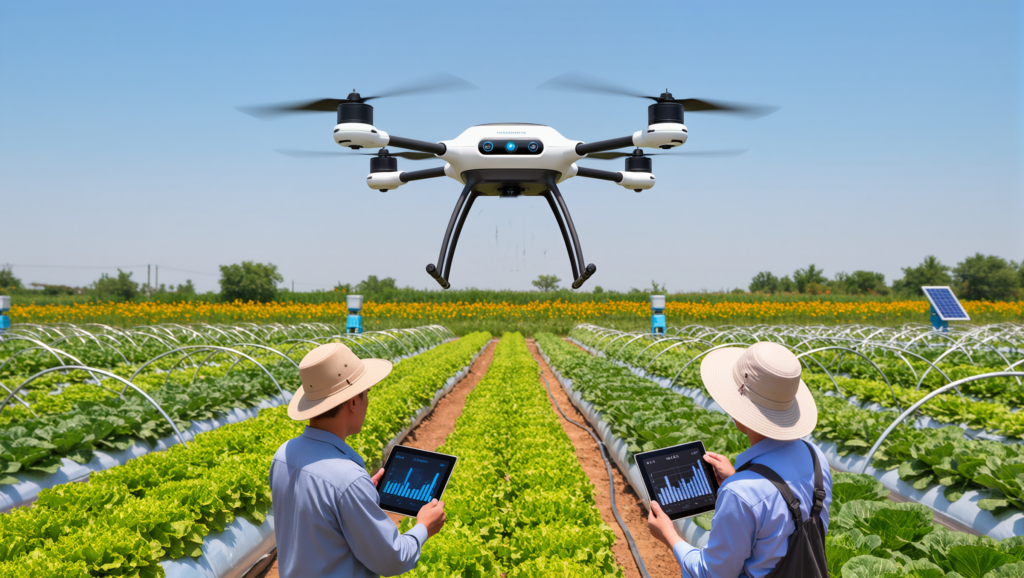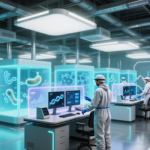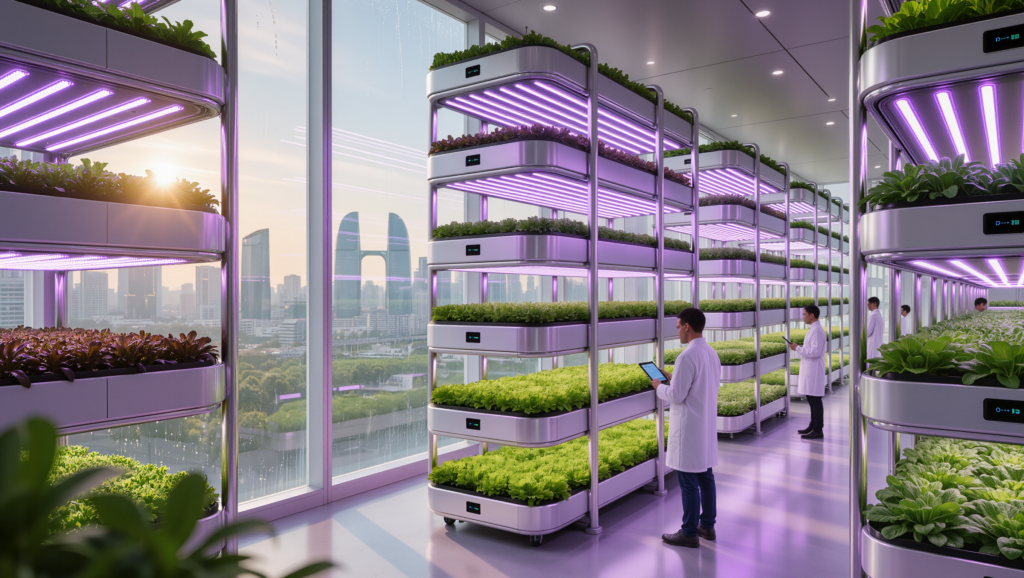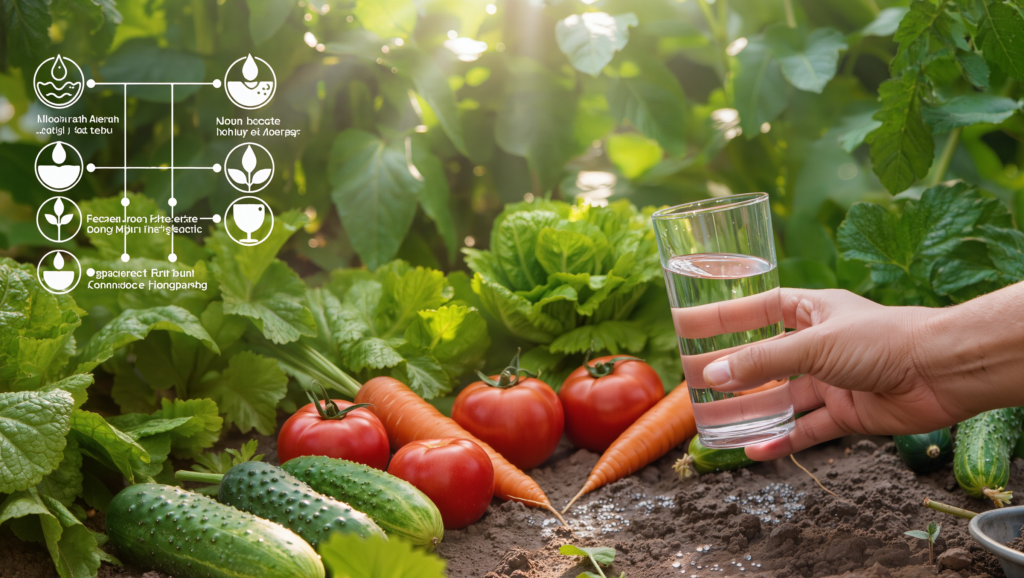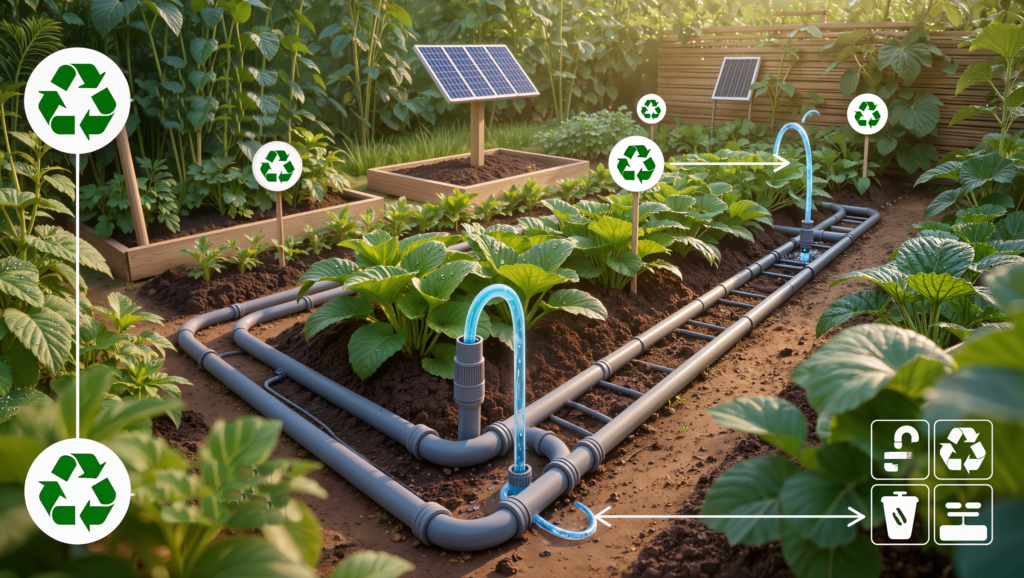When you think of organic farming, you might picture sun-drenched fields tended lovingly by hand, free from pesticides and hi-tech gadgets—but today’s organic farms are breaking the stereotype. Thanks to artificial intelligence (AI), the world of organic vegetables is experiencing a tech renaissance. Farmers, big and small, are turning to data-driven strategies, robot helpers, and AI-powered insights to produce vegetables that are healthier, tastier, and more sustainable than ever before.
Let’s take a closer look at how AI is quietly revolutionizing organic vegetable growing, making that perfect tomato—or crunchy carrot—on your fork smarter from seed to harvest.
Beyond the Tractor: What Does AI Actually Do on an Organic Farm?
AI in organic farming isn’t about growing “robot vegetables”—it’s about giving farmers the tools and knowledge to work with nature, not against it. Here’s a rundown of today’s AI-powered tools that are changing organic growing for the better:
1. Precision Farming for Beautiful, Nutritious Crops
Think of AI as a digital farmhand: it collects, analyzes, and acts on mountains of field data, including soil health, moisture levels, weather patterns, and crop growth rates. Sensors and drones feed this data to AI systems, which then provide real-time recommendations—when to irrigate, how much water to use, and which fields need organic compost or pest management.
Benefits:
- Grows healthier, more nutrient-dense vegetables by only applying water and nutrients when and where needed
- Cuts down waste and runoff, supporting ecologically sound practices
- Prevents under- or over-watering, leading to more predictable yields and tastier produce.
2. Smarter, Targeted Pest and Disease Control
One of the biggest hurdles in organic farming is fighting pests and disease without resorting to synthetic chemicals. Enter AI-powered robots and apps that spot threats earlier and help farmers act before problems explode.
- AI robots survey fields with cameras and sensors, identifying weeds with uncanny accuracy and removing them with minimal disturbance to crops.
- Apps process images of leaves to diagnose diseases—think “Shazam for sick plants.”
- AI algorithms recommend targeted organic controls or biological management, minimizing the need for broad-spectrum sprays and keeping beneficial insects safe.
Result? Less crop loss, reduced labor needs, and vegetables grown with fewer interventions.
3. Boosting Soil Health and Sustainability
Healthy soil grows healthy vegetables. AI is helping farmers monitor and improve soil quality by analyzing nutrient levels, organic matter, and microbial activity; it can even forecast how different cultivation methods (e.g., crop rotation, compost application) will affect soil health.
- AI integrates satellite images with ground sensors to give farmers a “soil health report card” for every square meter of land.
- Targeted recommendations mean organic matter gets added where it’s needed most, maximizing productivity and sustainability.
4. Yield Prediction and Climate Resilience
Organic farmers face challenges from unpredictable weather and climate variability. AI’s predictive analytics turn historical and real-time data into accurate forecasts, helping growers anticipate:
- The best planting and harvest dates
- Water and nutrient needs as weather changes
- Potential pest outbreaks after climate swings.
Case Study: On an Alberta organic farm, yield predictions helped the grower reduce water use by nearly 30% and increase yields by 25% in the first season using AI. This data-driven resilience is key in a changing climate.
5. Robotics and Automated Helpers
AI-powered robots are no longer sci-fi—they’re reality in organic vegetable farming. These gentle machines:
- Weed selectively, sparing healthy plants and protecting soil
- Harvest with careful precision, ensuring less waste
- Plant seeds in patterns optimized for sunlight, soil, and water
Because these bots don’t compact the soil or rely on chemicals, they maintain organic standards while boosting productivity.
From Big Farms to Backyards: Who’s Benefiting From AI?
AI isn’t just for massive agribusiness. Here’s how operations of all sizes are reaping the rewards:
Small-Scale Farms
- AI tools are increasingly user-friendly, with mobile apps and affordable sensors.
- Farmers like Sarah Henderson in Alberta saw a huge boost in efficiency and yields after using AI for crop health and irrigation decisions—without losing their hands-on, organic touch.
- Community-run projects leverage shared AI platforms, pooling data to optimize crop rotation and minimize fallow periods—keeping soils healthier collectively.
Large Organic Enterprises
- Broad-acre operations use drones, satellite mapping, and AI to manage huge fields.
- Predictive analytics streamline labor, harvest, and reduce costly crop losses, helping organic stay competitive with conventional farming.
- Integrated use of AI in logistics, from shipment to storage, keeps vegetables fresher and reduces supply chain waste.
Real-World Case Studies: AI in Action
- Organic Vineyard in California: AI-equipped drones monitor grapes for disease, enabling early, targeted action and boosting yields by 20% in only two seasons.
- Family Organic Dairy (Midwest): Predictive AI suggests the best grazing spots and times, reducing feed costs by 15% and supporting the health of both cows and pastures.
- European Organic Collaboration: Farms share data via AI platforms for crop rotations, minimizing fallow land and supporting biodiversity. Profits and soil health both improved.
Challenges and Considerations
AI in organic farming isn’t magic—it requires upfront investment, robust data, and willing adoption from farmers. There can be resistance to new tech in traditional communities, and AI models must be adapted to local crops and conditions to avoid “one-size-fits-all” recommendations.
But the trend is clear: As success stories multiply and technology becomes more accessible, AI is increasingly viewed as a critical partner—not a replacement—for the skill and passion of organic farmers.
The Verdict: Greener, Healthier Veggies—With a Side of Silicon
AI is reshaping how we grow organic vegetables, making farming smarter, more efficient, and more resilient in the face of climate and market pressures. With better pest management, sustainable soil health, climate-adaptive planning, and major boosts in yields, AI is helping to fulfill the promise of organic agriculture: healthier food, thriving ecosystems, and satisfied farmers.
Next time you bite into a crisp organic carrot or a juicy tomato, remember: it might just be the product of millennia-old farming wisdom—supercharged by the brains of tomorrow.


